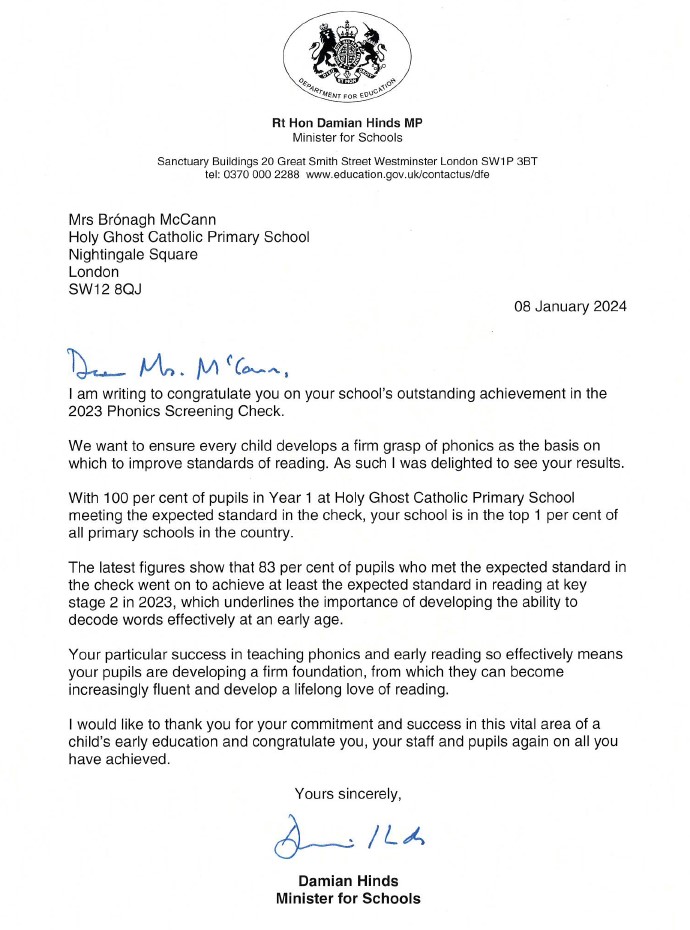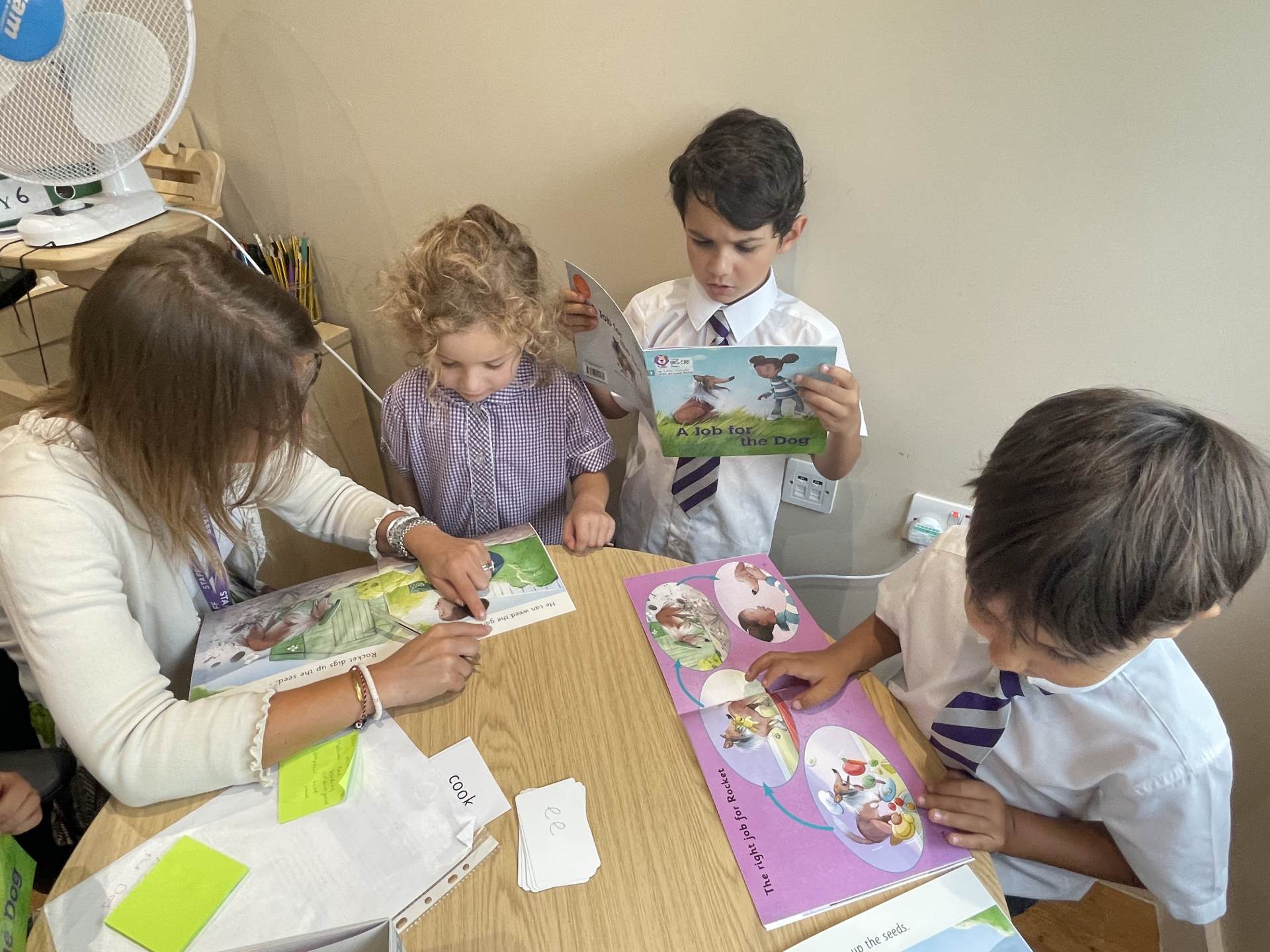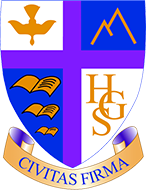Early Reading - Phonics
‘A love of reading is the biggest indicator of future academic success.’
OECD (Organisation for Economic Co-operation and Development)
Phonics
Our school has chosen Little Wandle Letters and Sounds Revised as our systematic, synthetic phonics programme to teach early reading and spelling.
At Holy Ghost, phonics begins in Reception and continues through to Y2 and onwards in KS2 for pupils who need further support with their phonics. Pupils sit the Phonics
Phonics is taught daily in twenty-minute sessions, alongside three shared reading sessions in KS1. We teach four new sounds a week and have a review lesson on a Friday. Please see attachments below which will assist you with the pronunciation of sounds for each phase and provide an overview of progression in Reception and Year 1.
Click here for the Phase 2 Pronunciation Guide
Click here for the Phase 5 Pronunciation Guide
Click here for the Program Overview for Reception and Year 1
Click here for the Capital Letter Formation Guide
In Reception, children start their phonics journey in the first autumn term, where they will look at wordless books and learn their first sounds. Following the Little Wandle scheme and progression, we aim to have majority of all Reception children blending their sounds by Christmas. Children consolidate their knowledge of Phase 2, 3 and 4 in Reception.
Phonics continues daily in Year 1 beginning with revising the sounds covered in Reception before quickly moving on to Phase 5.
In Year 2 we revise Phase 5 sounds in the autumn term before starting our No Nonsense Spelling scheme.
Our recent Phonics success.

Reading
Our shared reading sessions occur three time a week. These are short reading sessions led by an adult, which focuses on three areas:
- decoding (sounding out) the words,
- prosody which is reading with expression and fluency– making the book sound more interesting with our story-teller voice or our David Attenborough voice
- comprehension.
We read the books three times at school to develop the fluency. The more children see words the more they begin to read them automatically without having to sound them out.
We use careful assessment each half term to assist us ensuring each child has a correctly matched phonic book.
Having a correctly matched reading book means that your child should:
- Know all the sounds and tricky words in their phonics book well
- Read many of the words by silent blending (in their head) – their reading will be automatic
- Only need to stop and sound out about 5% of the words by the time they bring the book home – but they should be able to do this on their own.
Reading for Pleasure Books
Sharing reading for pleasure books are alongside the phonetically decodable book. The sharing book is a book that is chosen children and parents to enjoy together.
This is not a book that should be read by the child, but one you read it to or with them. We encourage parents to discuss the pictures, enjoy the story, predict what might happen next, use different voices for the characters and explore the facts in a non-fiction book. The main thing is that you have fun!
Wordless Books
At the beginning of Reception, children come home with wordless books. Once children start securing sounds that are taught in school, books that are suited to their phonetic knowledge will be sent home.
Here are some tips for reading wordless books with your child:
- Encourage your child to describe what they can see on each page, building up their vocabulary.
- Highlight different parts of a book to your child e.g. the title and the blurb.
- Play games with your child to see if they can find things on each page.
- Orally segment the names of things in the book, highlighting the initial sound e.g. ‘Can you find a fish?’ ‘What is the first sound you can hear in fish?’ ‘What other sounds can you hear in fish?’
www.littlewandlelettersandsounds.org.uk - Resources for Parents
There will be two types of reading book that your child will now bring home:
- A reading practice book. As usual, we will continue to change an actual, physical book once week.
- A sharing reading for pleasure book.
One of the greatest gifts adults can give
is to read to children.
Carl Sagan
![]()

